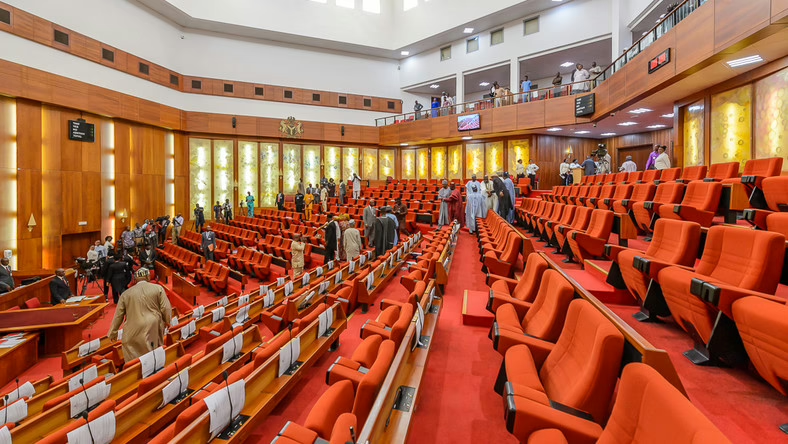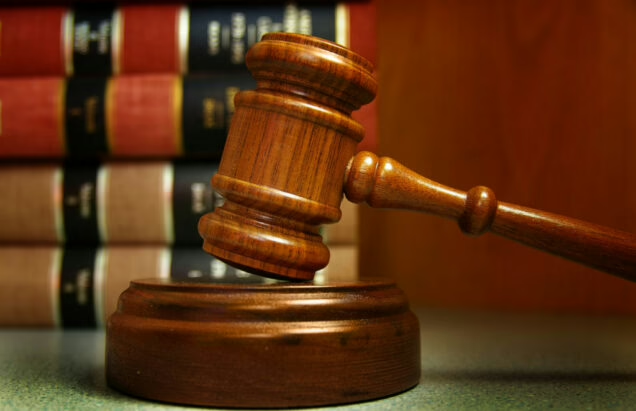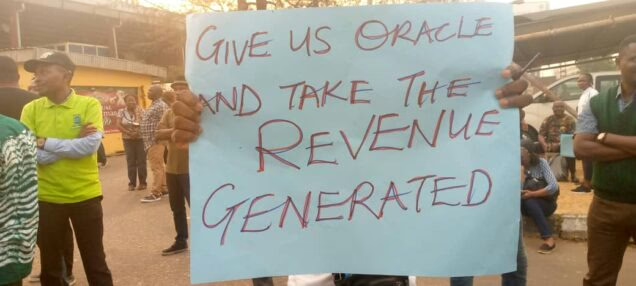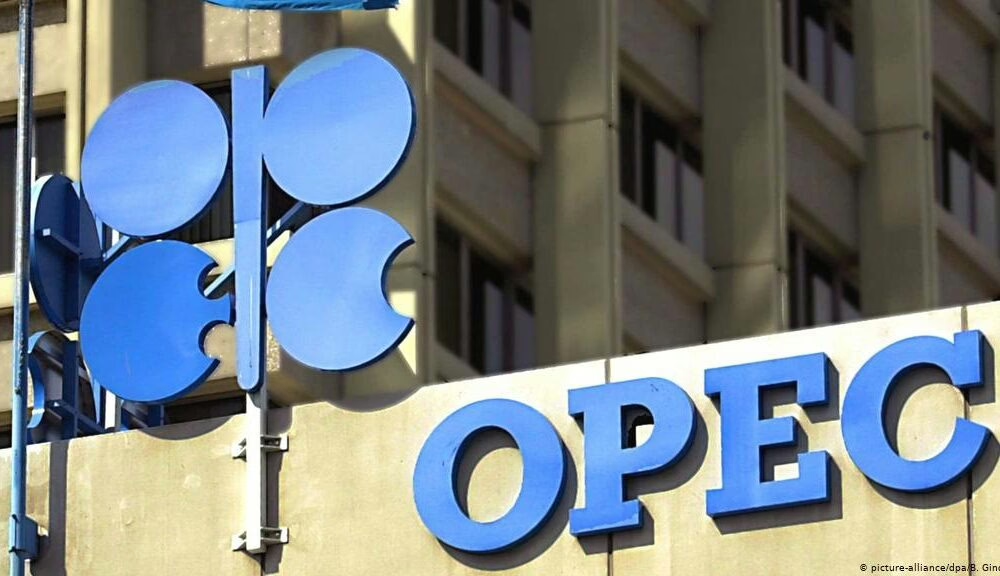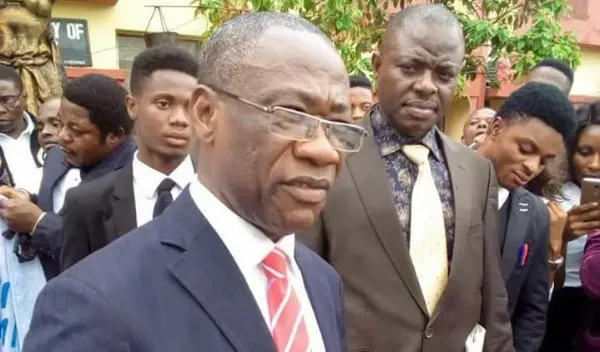Nigeria’s three dominant presidential candidates lock horns on Saturday in a titanic presidential election. Though there are 18 candidates vying for the presidency tomorrow, three of them are clearly favourites. They are Asiwaju Bola Tinubu of the All Progressives Congress (APC), Atiku Abubakar of the Peoples Democratic Party (PDP) and Peter Obi of the Labour Party.
Nigeria’s presidential election, since 1999 used to be two-horse race, but this year’s election is different. Peter Obi, contesting under a little-known Labour Party has changed the equation, making the election a three-horse race. Capitalising on #EndSARS imbroglio, buoyed by the youth population and a determined Igbo race, Obi is set to lock horns with the others.
The campaigns had been held, there had been series of campaigns of calumny, mudslinging and the rest, the denouement has been reached, there is no going back, the stage is set, the battle must begin tomorrow and the masses have the final say.
This year’s election is going to be very interest and hotly contested because of what many Nigerians perceived as a horrid eight-year of President Muhammadu Buhari’s administration, climaxing into the inglorious, obnoxious and offensive Naira redesign policy that has impoverished the masses and inflicted massive hunger on Nigerians.
Who are the candidates and their chances?
1. Asiwaju Bola Tinubu (APC) The APC Presidential Candidate, Asiwaju Bola Tinubu
The former Lagos State Governor is one of the favourites to win the presidential election on Saturday. Tinubu is a veteran politician and is not new in the game. He served two terms as a governor from 1999 to 2007 and Senator for Lagos West during the botched Third Republic. In June 2022, he was chosen as the All Progressives Congress nominee in the 2023 Nigerian presidential election.
Tinubu, 70, spent his early life in southwestern Nigeria and later moved to United States where he studied Accounting at Chicago State University. He returned to Nigeria in the early 1980s and was employed by Mobil Nigeria as an accountant, before entering politics as a Lagos West senatorial candidate in 1992 under the banner of the Social Democratic Party. After dictator Sani Abacha dissolved the Senate in 1993, Tinubu became an activist campaigning for the return of democracy as a part of the National Democratic Coalition movement. Although he was forced into exile in 1994, Tinubu returned after Abacha’s 1998 death triggered the beginning of the transition to the Fourth Republic.
In the first post-transition Lagos State gubernatorial election, Tinubu won by a wide margin as a member of the Alliance for Democracy over the Peoples Democratic Party’s Dapo Sarumi and the All People’s Party’s Nosirudeen Kekere-Ekun. Four years later, he won re-election to a second term over the PDP’s Funsho Williams by a reduced margin.
Tinubu’s two terms were marked by attempts at modernizing the city of Lagos and his feuds with the PDP-controlled federal government. After leaving office in 2007, he since played a key role in the formation of the All Progressives Congress in 2013. Long and controversial, Tinubu’s career has been plagued by accusations of corruption and questions about the veracity of his personal history, which he has since denied. No court of law or anti-graft agency has ever found him wanting after several investigation.
Since he left office, he has been a kingmaker, influencing who becomes governor in Lagos. He is regarded as the godfather of Lagos politics. He is highly instrumental in the installation of Buhari as president in 2015 and 2019 after the president had failed on three attempts at the exalted office. His entrance into the 2023 race has sent fear in the spine of opposition parties. Fearing that he is going to win, there have been lots of campaigns of calumny against him, with fake reports about his certificates, health and so on. Several court cases to thwart his presidential ambition were thrown out by the court. He is the candidate to beat on Saturday.
2. Atiku Abubakar Atiku Abubakar
Former Vice President, Atiku Abubakar, is not new in the presidential game. Having served two terms as vice president under former President Olusegun Obasanjo’s regime between 1999 and 2007, Atiku, 76, has had five attempts at the presidency, but failed. This is the sixth and last time he is attempting the become Nigeria’s president, which seems to have informed the desperateness in his campaign. The zoning of the presidency supposed to have been for the South, as Buhari would have served eight years at the end of his tenure, knowing that he will miss out if the South is allowed to hold on to power for eight years, he broke the zoning equation of the PDP and muzzled his way to win the primary election. To Atiku, it is win or burst on Saturday.
Atiku ran unsuccessfully for President of Nigeria five times, in 1993, 2007, 2011, 2015, and 2019. He ran in the Social Democratic Party presidential primaries in 1993, but lost to Moshood Abiola and Baba Gana Kingibe. He was a presidential candidate of the Action Congress in the 2007 presidential election coming in third to Umaru Yar’Adua of the PDP and Muhammadu Buhari of the ANPP.
He contested the presidential primaries of the Peoples Democratic Party during the 2011 presidential election losing out to incumbent President Goodluck Jonathan. In 2014, he joined the All Progressives Congress ahead of the 2015 presidential election and contested the presidential primaries losing to Muhammadu Buhari. In 2017, he returned to the Peoples Democratic Party and was the party presidential candidate during the 2019 presidential election, again losing to incumbent President Buhari.
In May 2022, he was chosen as the Peoples Democratic Party presidential candidate for the 2023 general election after he defeated Nyesom Wike, the current Governor of Rivers State, in the primaries.
Atiku was implicated in an international bribery scandal along with William Jefferson and one of Atiku’s wives, Jennifer Atiku Abubakar. Following rumours by pundits that Atiku was unable to visit the United States, in January 2017, the U.S. government released a statement saying it would need the consent of the politician before it can disclose the true state of his immigration status to the United States. Abubakar has publicly claimed that the true reason is that his visa is still being processed. However, in recent times, Atiku in company with Bukola Saraki, visited the United States 17 January 2019 with the aid of Brian Ballard.
He is one of the favourites for the exalted office, banking on the huge northern votes, he thinks this will catapult him to office this Saturday. He cannot be written off. What might work against Atiku is the polarisation in his party. Five governors under the aegis of aggrieved 5-G governors are working against him. The are Nyesom Wike of Rivers, Samuel Ortom of Benue, Okezie Ikpeazu of Abia, Seyi Makinde of Oyo and Ifeanyi Ugwuanyi. They are aggrieved because the national chairman of the PDP, Iyorchia Ayu refused to resign his appointment to allow for fairness in the distribution of appointments in the PDP.
Also the Obi factor will work against Atiku in the South East and South South, which used to be his strong base. The entrance of Obi into the race, being supported by mostly vociferous Igbo supporters, will certain robbed Atiku of his votes in those areas.
3. Peter Obi Peter Obi
The emergence of Peter Obi has changed the equation in Nigeria’s politics, making it a three-horse race for the first time since 1999. Obi, 62, is a Nigerian businessman and politician who served as governor of Anambra from March to November 2006, February to May 2007, and June 2007 to March 2014. In May 2022, he became the Labour Party nominee for President of Nigeria in the 2023 presidential election, after defecting from the Peoples Democratic Party, where he felt he could not win the primary because of the ‘money bags’ in the party.
Obi ran for governorship in 2003 as a member of the All Progressives Grand Alliance, but Chris Ngige was declared winner of the election. In 2006, the election of Ngige was nullified and Obi was declared winner of the 2003 election, and he assumed office in March 2006. He was impeached in November the same year, but his impeachment was overturned and he returned to office in February 2007. Obi was removed after the 2007 Anambra State gubernatorial election, but the judiciary again intervened by ruling that he should be allowed to complete a full four-year term. In 2010, he was re-elected to a second term.
After leaving office in 2014, Obi decamped to the Peoples Democratic Party. In 2019, he was selected as the PDP vice presidential nominee in the presidential election running alongside Atiku Abubakar, but the ticket was lost to incumbent president Muhammadu Buhari and vice president Yemi Osinbajo. In 2022, Obi ran for president himself, first in the PDP until defecting to the LP in May 2022 to obtain its nomination. Obi’s presidential campaign has been described as populist and has been noted for its support among many young Nigerians, who have been nicknamed “Obidients.” Younger generations under 30 proved to be some of the biggest Obi’s supporters, showing their support via social media and protests and street marches. They are vociferous, angry, abusive, arrogant and deadly, as they often threaten to kill those not supporting their candidate.
Obi’s campaign is faced with allegation of corruption in the Pandora Papers leaks. Obi’s involvement in offshore companies in tax havens such as the British Virgin Islands and Barbados, is a thing of concern.
Obi appeared to have made shell companies in the 1990s with the Barbados-based Beauchamp Investments Limited and UK-based Next International (UK) Limited being tied back to Obi and his family. This was before he held any political office in Nigeria. Further reporting showed that in 2010 as well, Obi had Access International help him set up and manage Gabriella Investments Limited, a company in the British Virgin Islands named after Obi’s daughter. One of the directors was also the director of a Belize-based shell company that was issued 50,000 shares in Gabriella Investments. In 2017, Obi reorganized the company under the name PMGG Investments Limited and created a trust named The Gabriella Settlement which became the sole shareholder in PMGG Investments Limited. Obi was not holding any political position at this time.
According to the Premium Times report, it claimed that Obi had broken several laws due to his business dealings. The report claimed that firstly, Obi remained as director of Next International (UK) Limited while serving as Governor of Anambra State, which is in direct violation of Code of Conduct Bureau and Tribunal Act. However Obi described that claim to be misleading and wrong in an interview with Arise News stating that he resigned from all companies before taking the office of Governor of Anambra State. Secondly, it claimed that Obi’s non-declaration of his offshore companies broke the Nigerian Constitution’s provision that require public officers to declare all their properties, assets, and liabilities.
A few days after the report, Obi responded by claiming that he did not break any laws and clarified that the accounts’ money was accrued from his time as a businessman. The EFCC invited him for questioning later in October 2021 after Buhari directed all anti-corruption agencies to investigate those named in the leaks. However, no criminal case has ever been filed against Obi.
Obi is also accused of investing Anambra Government’s money into his family business on behalf of the state government, which many have said it is corruption.
He is strong contender in this Saturday’s election, his victory at the poll will be the biggest shock in Nigeria’s history under a little-known Labour Party, but political pundits doubt if that will happen tomorrow. Obi is likely to win in five South East States and some states in South South.


